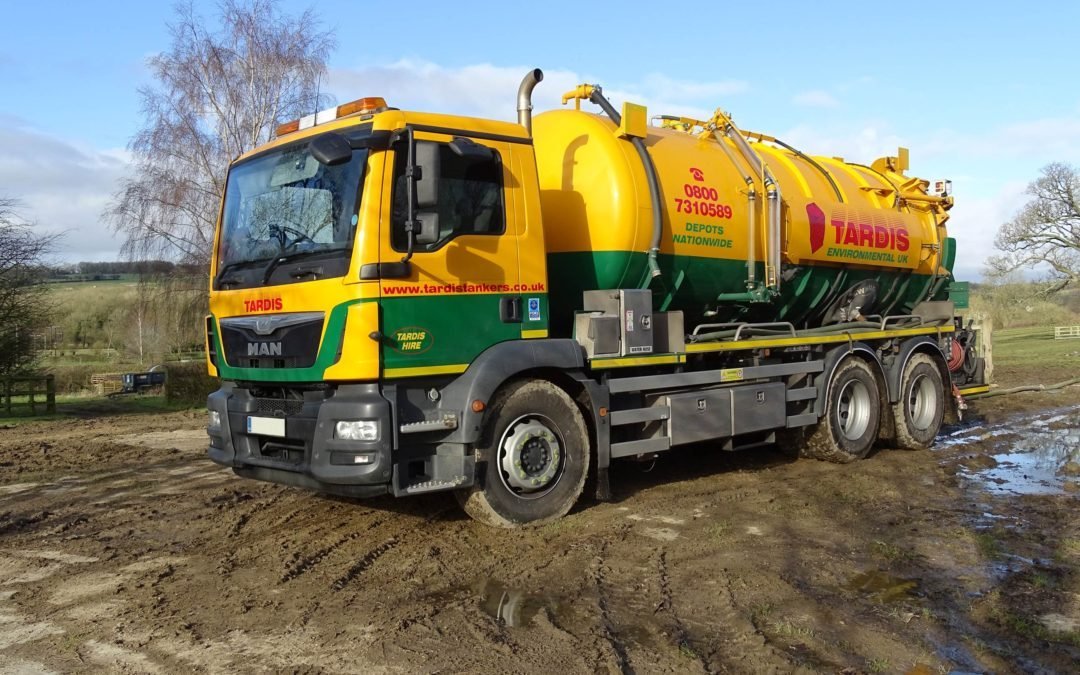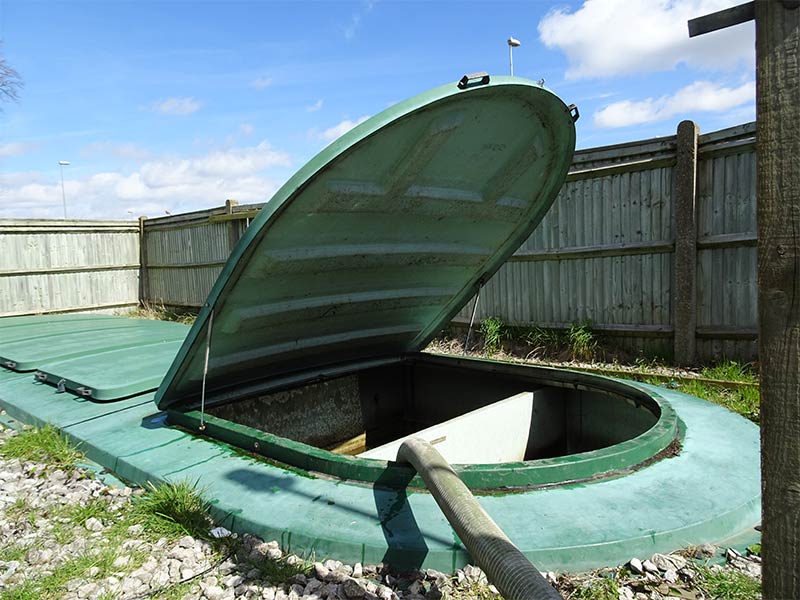Septic Tank Maintenance Guide
If you live or work in an area that isn’t connected to the main sewage network, then it’s more than likely you have a septic tank (or cesspit) in the vicinity of the premises.
Septic tank maintenance will help your tank run efficiently and help prevent issues. Specific properties, both domestic and residential, will have a septic tank system, especially in rural areas. They are found when the property has no access to the main sewage line. The septic tank acts as a sewage system.
Within the septic tank guide, we will cover key points including:
- How does a septic tank work?
- How regular to empty the tank
- Responsibility of using a septic tank
- When do you require septic tank servicing?
- Potential issues with septic tanks
Who is responsible for the upkeep of the Septic Tank?
Both domestic and commercial owners are responsible for maintaining a septic tank. Flooding or foul smells can be harmful to the local environment and nearby residents. Poor maintenance of septic tanks (particularly older installations) could result in further issues down the line. There are strict procedures and regulations in place to ensure those responsible for their septic tank carry out the right procedures before problems occur.
How does a septic tank work?
A septic tank is installed underground and for various reasons such as hygiene and durability is made from plastic, which of course won’t rust or decompose.
The tank, Lurking away in the darkness, has three distinct layers.
The top layer is known as crud and will not decompose naturally. It floats on top of the wastewater and is an excellent reason to have a tank emptied even if it is a low use facility.
The wastewater layer comes below that and can exit slowly through a T shaped outlet to a drain field or soakaway which filters through to the naturally occurring groundwater level or water table.
The third layer is the part we’ll be less descriptive about using your imagination. Bacterial action breaks down the solids into a mush. The planet as a whole is dependent on these little fellows, the circle of life, and all that.
How often should I empty my septic tank?
The answer is dependent on how much it is used. For example, a property housing just two people are less likely to fill the tank as quickly as a family of five.
As a rule of thumb, we say at least once a year for the average domestic tank.
Some properties have what’s called a cesspit, and though less common they still exist.
You may wonder what the difference is. Well, they both hold wastewater and the unmentionable stuff. The main difference is a cesspit or pool has no access hatch and is usually sited above ground.
Septic tanks that require emptying will often be made apparent by bad smells or overflowing of water and sludge. Signs of slower flushing may require the tank being pumped. It also could mean there is a blockage in the pipe from the property to the tank. If you have any issues, Tardis Environmental provide septic tank services to get your septic tank working properly.
Is there any special care required with a septic tank?
Because it’s advisable to maintain the levels of bacteria working away in your waste facility, use biocides like domestic bleaches, antibacterial soaps and washing up liquids, by all means, to keep your kitchen and bathroom clean and healthy, but be mindful of the fact their antibacterial action will still be working once you’ve flushed it away.
And please remember, don’t flush cotton buds, wet wipes or disposable nappies into your tank, they don’t biodegrade.
How do I know my septic tank needs a service?
You’ll probably be alerted by the odour or worse still there’ll be unpleasant-smelling liquid overflowing the T shaped outlet mentioned above. Your toilet and sinks may take longer to drain, so this is your call to action to have the tank emptied.
How can I have my septic tank serviced?
Simple, We send a tanker equipped for such tasks to empty the tank. This involves running a suction hose from the vehicle, into the tank via its hatch.
How do I arrange my service?
Before we pop along, we’ll want to know a bit about your property, such as how far the access to the tank is from road or driveway. The approximate size of your tank and quite importantly, we’d like to know if your property is accessible for an HGV.
You see, where difficulties occur, experience has equipped us with solutions. Our new 7.5-tonne “mini” tanker can find its way into places a 26 tonne one would find too much of a challenge.
We also have a towable vacuum unit that we attach to a 4×4 on occasion, when we’re asked to deal with those narrow country lanes.
If you book a service with us, as part of the procedure, we send out a detailed specification of the vehicle we intend to send. This is so you can check those dimensions and ensure we can reach the tank from where the vehicle parks up. Just a little planning can spare an awful lot of heartache. Other questions it’s wise to ask yourself before we come along.
Is the hatch or access to the tank straightforward?
Is it not locked or obscured by shrubbery or brambles, for example? If we know all this in advance, the operation is sure to go with military precision.
Tardis Environmental has been in the waste management business for 27 years now with experience in portable toilets for construction, events and festivals, weddings, and parties.
We remove waste from construction sites and domestic pro in bulk along with other sorts of liquid waste such as drilling slurry and floodwater. It is all disposed of at the appropriate facilities for the waste being tipped.
Potential issues with your Septic Tank
Here are some common problems people may have with Septic tanks and some possible causes/ solutions to the problems.
If your tank is overfull BUT only when there is wet weather so during or after heavy rain:
· Check to see if the rainwater is entering your system
· Check to see if not the rainwater then maybe the surface water is then entering your system instead
· OR your septic tank may be too small for your household and needs to be emptied more regularly
If your tank is overfull all of the time and not JUST in wet weather
· The soakaway area may be too small
· Septic tank could be too small for your household
· The soakaway may have a large hole that is full up with stones etc
· Have a failed percolation area: it has a long trench with a land drainage pipe, it is installed below the site water table, or it is placed in a wet area
If your pipes are blocked and the tank is not over full:
· Check the pipe for a blockage
· Check for a badly fitted manhole
· Check for collapsed or sagging pipes.
If there is a bad odour coming from your septic tank:
· The tank could be backed up
· There may be a sludge build-up
· Maybe due to the wet weather
· Poor air ventilation
Other Problems:
1. Sludge build-up: This is the main reason that septic tanks back up. They should be emptied once a year.
2. Sewage odours: A leak could cause this. Other potential plumbing problems or the septic tank could need cleaning.
3. Septic filter clogging: This is caused by not having it cleaned regularly.
4. Tree roots getting into cracks in the tank: This can cause the system to slow down or stop altogether.
5. Phosphates you get from detergents: As this can be a fertiliser that then will encourage algae to grow this can then block the perforations in the distributions pipes.
Tips for avoiding problems:
· Keep the amount of water going into the septic system to a minimum e.g., take shorter showers
· Keep kitchen waste out of the system
· Do not put non-biodegradable products in the system e.g., nappies
· Rather than powder dishwasher soaps use liquid or gel, due to the powder containing phosphates.
· Do not use the septic system to dispose of toxic materials e.g., paint thinners
Problems can be avoided by regular maintenance. We recommend that you have the tank emptied at least once a year depending on frequent usage. We have tankers that operate nationwide for septic tank emptying and de-sludging. Once we empty your tank, we can offer a weekly service to empty or schedule more of a periodic emptying. The weekly service is often for toilet block holding tanks on construction sites that have high foot traffic.
Small access point for emptying
Our vacuum tanker must be able to push the hose down into the tank to empty the sides of the tank. If the access point is not very wide, it will restrict emptying the tank. This may also be a culprit for septic tanks filling up quickly.
Top tips for maintaining your Septic Tank
· Only flush waste and toilet paper.
· Pump out your septic tank before problems occur.
· Converse water where possible.
· Arrange an inspection of your tank at least once a year (contact us for more information).
· Do not pour grease and oil down your sink.
· Protect the ground area your septic tank is located.
· If overflowing occurs, check if it contains sludge.
Is your Septic Tank adhering to 2020 regulations?
If you have an old septic tank system, you may not be compliant to the new law that takes places for septic tanks in 2020. The purpose of the rules is to help reduce pollution of sewage. This is preventing septic tanks from discharge waste into a stream or even a river. Check out more on the gov website by clicking here.
Septic Tank Emptying and Cleaning Services from Tardis Environmental
Maintaining is better than failing. Don’t let your septic tank fail before we can solve the problem. Our Tardis operatives will arrive on-site to empty your septic tank. To book your septic tank empty & cleaning, give us a call on 0800 731 0589.


